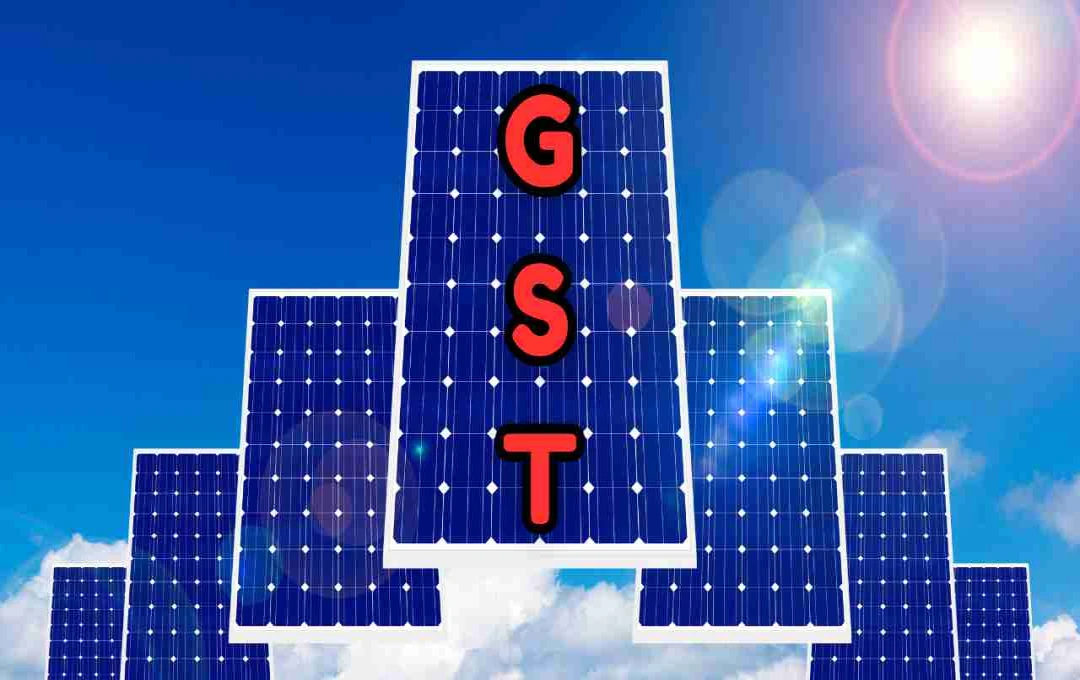Under GST reforms, the tax on renewable energy has been reduced from 12% to 5% effective September 22. This will result in savings of up to ₹9,000-10,500 on rooftop solar systems up to 3 kW. Farmers will also benefit under the PM-KUSUM scheme, making clean energy affordable across the country.
New GST Rates: The government has announced a reduction in the GST rate on renewable energy from 12% to 5%, which will be effective from September 22. This will lead to a reduction of ₹9,000 to ₹10,500 in the cost of rooftop solar systems up to 3 kW. Farmers will directly benefit under the PM-KUSUM scheme, thereby reducing the cost of clean energy projects and making electricity generation more affordable.
Direct Benefits for Homes and Farmers
The Ministry of New and Renewable Energy stated on Wednesday that this move will make it easier for millions of households to adopt solar energy. The cost of rooftop solar systems under the Pradhan Mantri Surya Ghar Muft Bijli Yojana (PM-KUSUM Scheme) will also decrease. This will directly benefit homes, farmers, industries, and developers.
This change will prove particularly beneficial for farmers. Solar pumps of 5 HP, costing approximately ₹2.5 lakh, will now be available at a discount of ₹17,500. When applied to 10 lakh solar pumps, farmers will collectively save ₹1,750 crore. This will make irrigation more affordable and sustainable.
Impact on Large-Scale Projects

The ministry indicated that, for example, the capital cost of a utility-scale solar project, which typically ranges from ₹3.5-4 crore per megawatt, will see a reduction of ₹20-25 lakh per megawatt due to the GST reform.
Similarly, a 500 MW solar park could see savings of over ₹100 crore. The reduction in GST will lower the levelized tariffs for renewable energy, thereby reducing the financial burden on electricity distribution companies (discoms).
This reform is expected to save ₹2,000-3,000 crore annually in power procurement costs across the country. This will provide end consumers with better access to cheaper and cleaner electricity. This step will strengthen the long-term stability of India's power sector.
Boost for Industry and Employment
Lower GST rates will reduce the cost of renewable energy equipment by 3-4%. This will increase the competitiveness of equipment manufactured in India and support the Make in India and Atmanirbhar Bharat initiatives.
The government aims to achieve 100 GW of solar energy manufacturing capacity by 2030. This reform will encourage new investments in domestic manufacturing hubs. The ministry stated that each GW of manufacturing capacity creates approximately 5,000 jobs. This reform has the potential to create 5-7 lakh direct and indirect jobs in the next decade.
Promotion of Clean Energy
With the new GST rates, electricity generation from solar energy projects will become more affordable. This will increase the spread of clean energy in India and boost the use of solar energy in domestic and rural areas. This change will attract both small and large investors to invest in solar projects.
This move by the government not only enhances the importance of clean energy but also sends a positive signal to investors and users in the energy sector.















